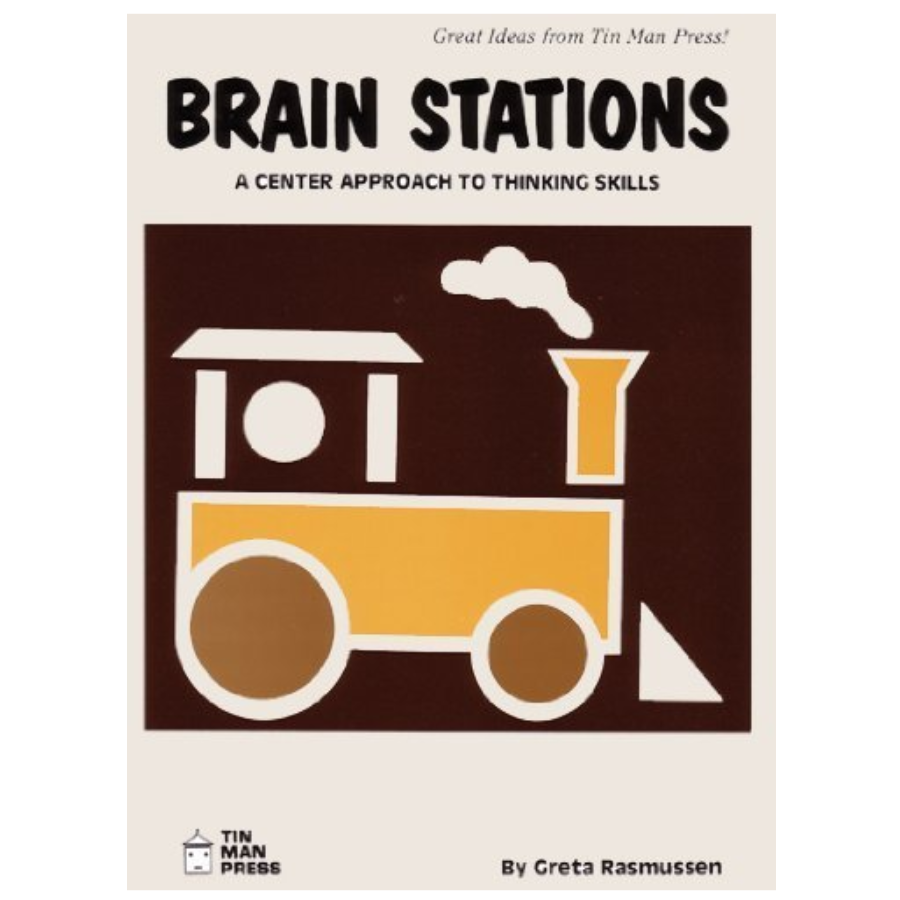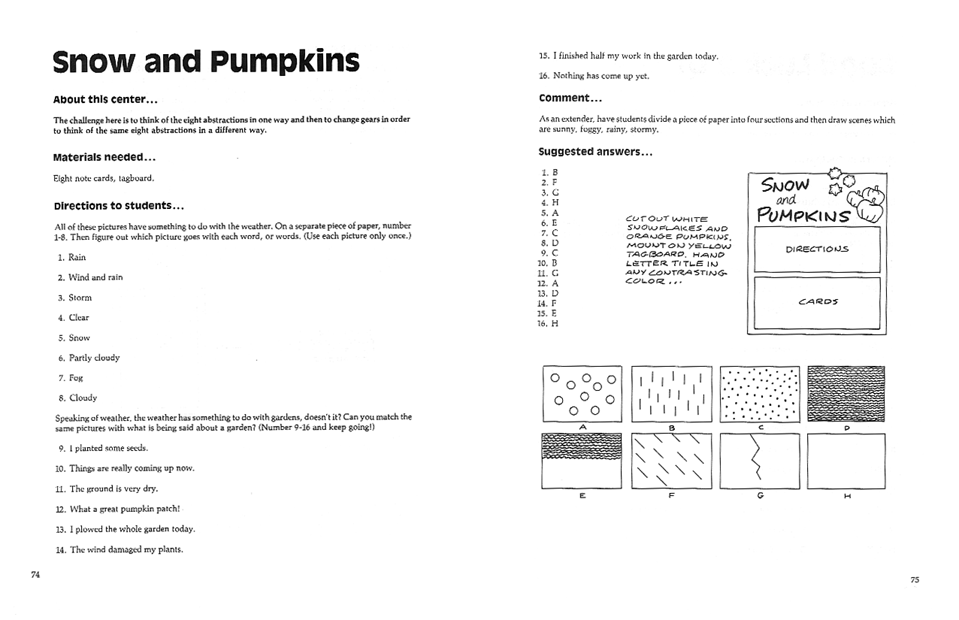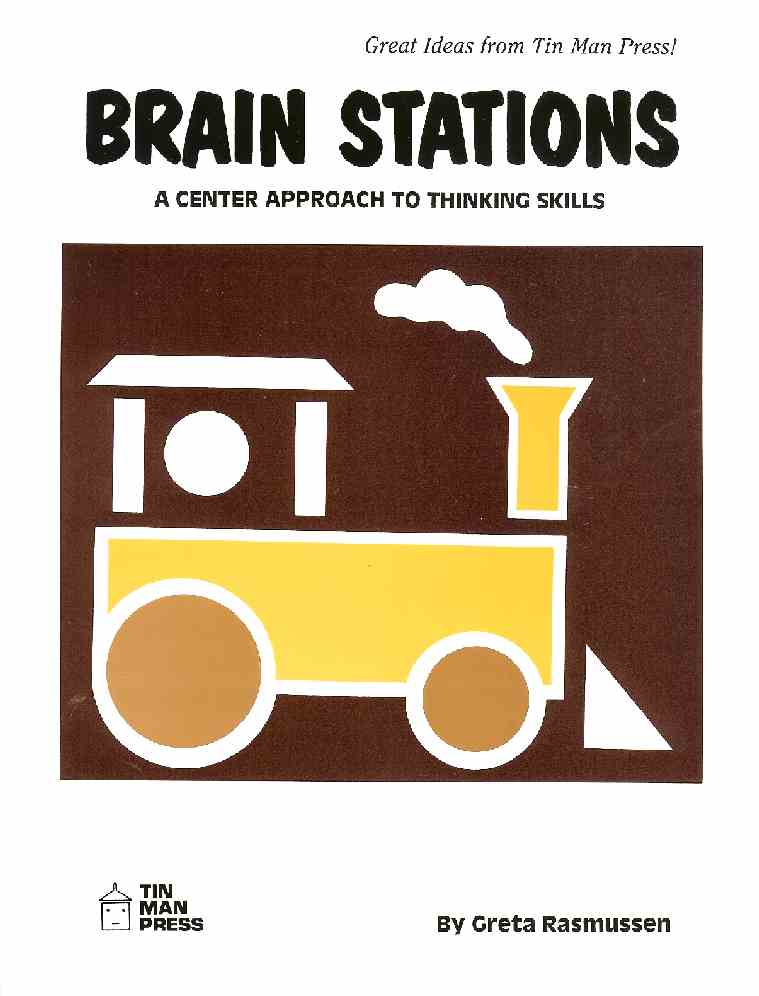Brain Stations, A Center Approach to Thinking Skills
Brain Stations, A Center Approach to Thinking Skills
Low stock: 2 left
Item Condition: NEW
Couldn't load pickup availability
Brain Stations, A Center Approach to Thinking Skills by Greta Rasmussen
Here are 50 thinking centers, 50 stops along an exciting thinking track. These innovative ideas are easy to implement. Everyone will have fun with "Your Face," "Silly Questions," "Blocks on Parade," "Mystery Marks," and many more. A best-selling title.
Book Details:
- Number of Pages: 112
- Book Size: 8-1/4" x 10-1/2"
- Book Type: Paperback
- Recommended Ages: 6-12
- ISBN: 0936110074
- ISBN: 978-0936110073
Book Condition:
- This book is brand new and is in perfect condition.
More Information from the inside cover of the book: Most educators agree that the development of thinking skills among children who will be living their lives in the 21st Century is of critical importance. Knowledge is exploding. So are problems. The ability to bring information into some kind of creative, logical focus is becoming more and more vital. This means that we must produce better thinkers. But how? How do you teach a child to think? It seems there are as many answers to that question, from our late 20th Century perspective, as there are dedicated and thoughtful people exploring it. That is well and good, for this kind of attention from a variety of viewpoints signals an important beginning. This book will not add anything to the theory of the teaching of thinking skills. That is not its purpose. This book is simply a recognition of one fundamental idea: if you want to teach a child to think, you must first convince that child that thinking is fun and worthwhile. The central thrust of this book, therefore, is motivational. It is designed to make clear to your students that you, the teacher or parent, hold the process of thinking in high esteem, and that you want to pass along this valuable process to your students or children. It is our belief that all children can be taught to think more imaginatively, flexibly and analytically. Obviously, some children are more adept at the process than others, just as some children are more natural artists or athletes. But all children, we feel, come with impressive thinking potential as part of their standard equipment, to borrow a phrase from the automakers. All too often, unfortuantely, this potential is not realized. It is not our business to examine the complicated reasons why some children turn off and others turn on to the joy of thinking. It is, however, our business to try to "hook" them before the powerful anti-thinking forces in our contemporary society get too strong a grip. This book, which is called "Brain Stations", is an effort to encourage children to have good experiences in the discipline of thinking. We want them to get the idea at an early age that thinking is fun, that (though it might not be up there with recess) it is important and rewarding. That is why this book is written in the learning center format. To place one child in front of an activity which you, the teacher or parent, have taken time to make, tells that child that he or she is being asked to do something of value. Now, a word about the nuts and bolts of this book. The author has taken pains to vary the texture of the activities in this book. You will find everything from abstractions to art, from manipulative problems to creative writing. You can contribute to this interest by making the centers yourself. Why? Because youngsters get tired of the sameness of worksheets, and the look-alike quality of commercially prepared graphics. Your hand, your personality, your touch, is more persuasive than you think. Use these things! In other words, have some fun preparing these centers. So what if your lettering is a little shaky and your art is not Rembrandt? Do it! Children will recognize, and respond to, your efforts. Another note: Since you will be asking children to go individually to a center to "think" about something, you must try to give them (despite your busy schedule) some response. In every case, you'll notice that children are required to turn something in to you. Give them some feedback. Furthermore, when you get some sparks that really light things up (and you will), make a fuss about it. Commend the child and share the accomplishment with the class or with other children. (After all, athletic coaches get a lot of mileage out of that approach, don't they?)
Share






